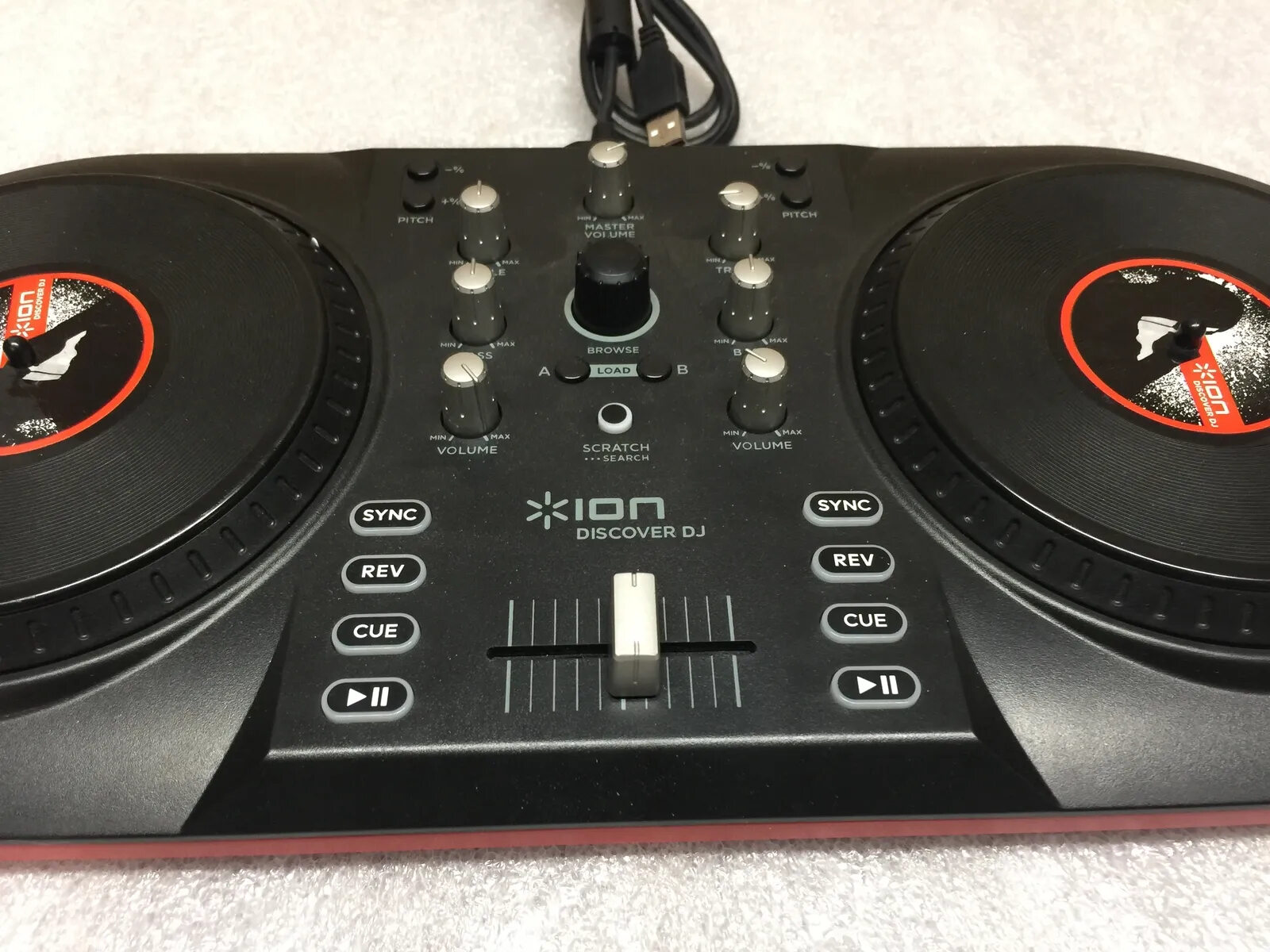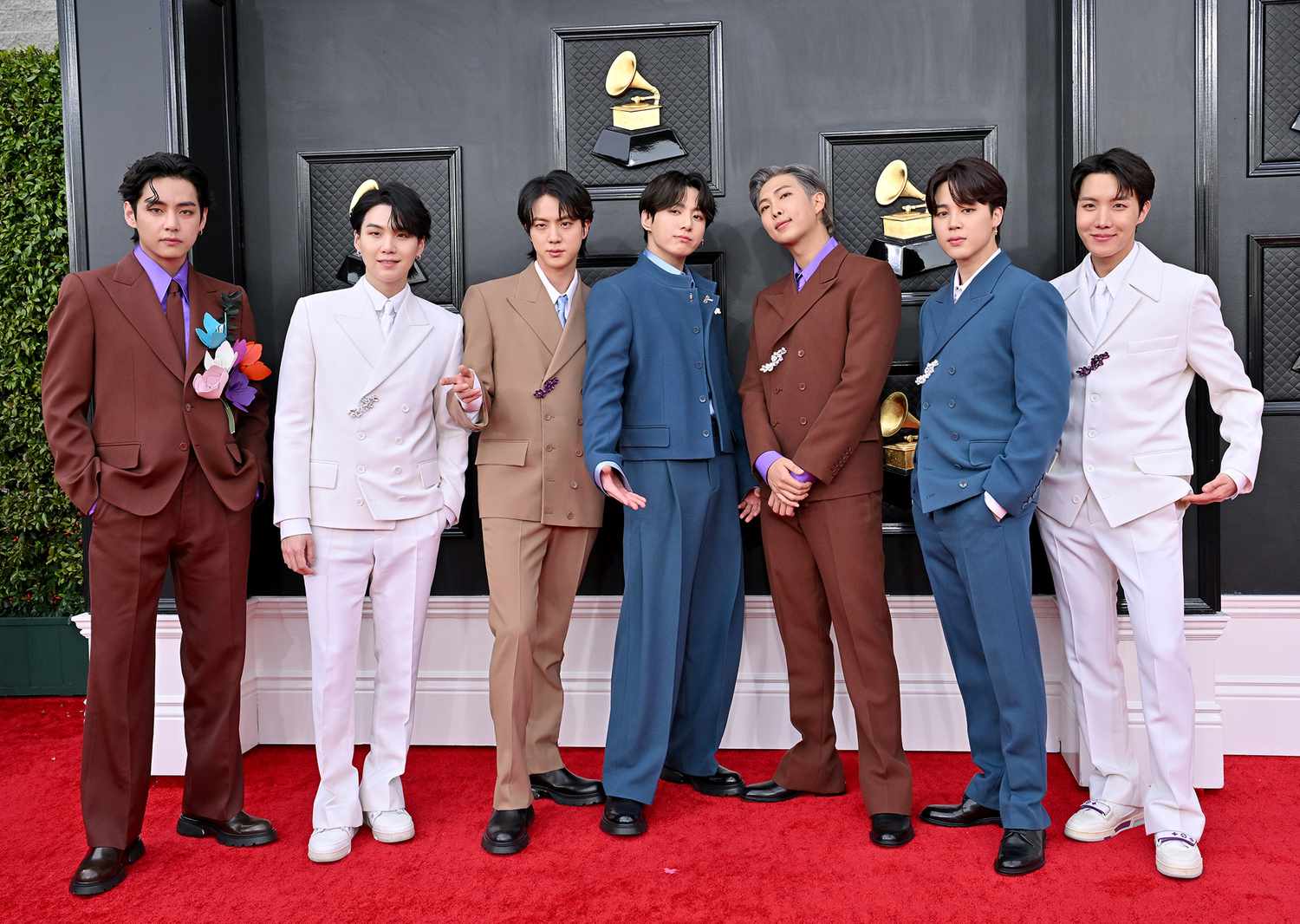Home>Instruments>Vocalist>How Does A Vocalist Get Discovered


Vocalist
How Does A Vocalist Get Discovered
Published: January 23, 2024
Discover how a talented vocalist gets discovered in the music industry. Learn the steps to take, the opportunities available, and the secrets to success.
(Many of the links in this article redirect to a specific reviewed product. Your purchase of these products through affiliate links helps to generate commission for AudioLover.com, at no extra cost. Learn more)
Table of Contents
- Introduction
- Developing Vocal Talent
- Building a Strong Portfolio
- Networking in the Music Industry
- Utilizing Social Media Platforms
- Participating in Music Competitions
- Collaborating with Established Artists
- Showcasing Talent through Live Performances
- Making Use of Online Platforms and Streaming Services
- Seeking Representation from Talent Agencies
- Conclusion
Introduction
Welcome to the exciting world of being a vocalist! As an aspiring singer, you have the incredible opportunity to share your talent with the world and potentially get discovered by industry professionals. The journey towards becoming a successful vocalist may seem daunting at first, but with the right strategies and determination, you can increase your chances of getting noticed and establishing a thriving career in the music industry.
Developing exceptional vocal talent is the foundation for a successful career as a vocalist. Take the time to invest in your craft by honing your singing abilities through regular practice and vocal training. This includes working on your vocal range, pitch accuracy, breath control, and overall technique. The more skilled you become as a vocalist, the more likely you are to stand out and capture the attention of industry professionals.
Building a strong portfolio is crucial for showcasing your talent and attracting the interest of music industry insiders. Start by recording high-quality demos of your performances or original songs. These demos should highlight your unique vocal abilities and demonstrate your range across different genres. Consider working with a professional music producer or sound engineer to ensure your recordings sound professional and polished.
Networking plays a significant role in the music industry and can be a key factor in getting discovered as a vocalist. Attend music industry events, such as conferences, workshops, and showcases, where you can connect with industry professionals and other musicians. Build genuine relationships with people in the industry, including producers, songwriters, and other vocalists. These connections can provide valuable opportunities and referrals for potential collaborations or performances.
Social media platforms provide a powerful medium for vocalists to gain exposure and attract attention from industry professionals. Create accounts on platforms such as YouTube, Instagram, and TikTok, and regularly share your performances and original songs. Engage with your audience by responding to comments and interacting with other musicians. Utilize relevant hashtags and collaborate with popular content creators to expand your reach and increase your chances of being discovered.
Participating in music competitions can be a great way to gain exposure and capture the attention of industry professionals. Whether it’s local talent shows or national singing competitions, these events provide a platform for you to showcase your talent to a wider audience. Winning or placing well in these competitions can open doors to exciting opportunities, such as performance gigs or record deals.
Developing Vocal Talent
Developing exceptional vocal talent is a crucial aspect of becoming a successful vocalist. Regardless of your natural talent, continuous practice and training are essential for honing your skills and elevating your vocal abilities.
One of the first steps in developing your vocal talent is understanding and mastering proper vocal technique. This includes learning how to control your breath, improve your pitch accuracy, expand your vocal range, and project your voice effectively. Consider working with a vocal coach or taking vocal lessons to receive guidance and feedback on your technique.
Regular vocal warm-ups are essential for maintaining vocal health and flexibility. These warm-ups help to relax and warm up your vocal cords, preparing them for singing. Incorporate exercises that target different aspects of your vocal technique, such as scales, lip trills, and tongue twisters, into your daily practice routine.
Listening to a variety of vocalists and genres can greatly enhance your own vocal skills. Pay attention to the different techniques, tones, and styles employed by various artists. Study their performances and try to incorporate elements of their singing into your own style, while still maintaining your unique voice.
Recording yourself while practicing or performing is an invaluable tool for self-evaluation. Listen back to your recordings and critically assess your performance. Look for areas where you can improve, such as intonation, delivery, or dynamics. This process will help you identify your strengths and weaknesses as a vocalist and allow you to tailor your practice sessions accordingly.
In addition to technical training, it is important to develop your musicality and interpretation skills as a vocalist. Take the time to understand the meaning and emotions behind the songs you sing. Experiment with different phrasing and dynamics to bring your own interpretation and personality into your performances.
Consistency is key when it comes to developing your vocal talent. Set aside dedicated practice time each day or week to work on your vocal technique and repertoire. Stick to a routine and challenge yourself to improve with each practice session. Remember, becoming a skilled vocalist takes time and effort, so be patient and persistent in your journey.
Building a Strong Portfolio
Building a strong portfolio is essential for showcasing your talent and attracting the attention of industry professionals. A well-curated portfolio can serve as a powerful tool in getting discovered as a vocalist. Here are some key steps to take when building your portfolio:
Record High-Quality Demos: Start by recording high-quality demos of your performances or original songs. Choose songs that highlight your vocal abilities and showcase your range across different genres. It’s important to invest in professional recording equipment or work with a professional music producer to ensure the quality of your recordings.
Choose Your Best Performances: Select the best performances from your repertoire to include in your portfolio. These performances should demonstrate your vocal skills, stage presence, and ability to connect with the audience. You want to showcase your versatility as a vocalist, so consider including performances of different musical styles to showcase your adaptability.
Include Studio Recordings: In addition to live performances, include studio recordings in your portfolio. These can be recordings of original songs or covers. Studio recordings provide a more polished and controlled representation of your vocal abilities and allow industry professionals to assess your potential for studio work.
Create a Professional Bio: Craft a compelling and concise bio that highlights your musical background, achievements, and unique selling points as a vocalist. Include any notable performances, awards, or collaborations you have been a part of. Your bio should give a glimpse into your artistry and capture the attention of those who are reviewing your portfolio.
Design a Visually Appealing Presentation: Consider the visual presentation of your portfolio. Create an eye-catching layout that incorporates high-quality images, videos, and graphics. Use a professional design software or work with a graphic designer to ensure your portfolio looks polished and visually appealing.
Update Regularly: Keep your portfolio regularly updated with your latest performances, recordings, and achievements. This demonstrates your growth as an artist and keeps your portfolio fresh and relevant.
Consider a Dedicated Website or Online Platform: Creating a dedicated website or utilizing online platforms like SoundCloud or Bandcamp can provide a centralized location for your portfolio. This allows industry professionals to easily access and navigate through your work.
In summary, building a strong portfolio is crucial for showcasing your vocal talent to industry professionals. Focus on recording high-quality demos, selecting your best performances, including studio recordings, creating a professional bio, designing a visually appealing presentation, and regularly updating your portfolio. With a strong and compelling portfolio, you increase your chances of getting discovered and opening doors for exciting opportunities in the music industry.
Networking in the Music Industry
Networking plays a significant role in the music industry and can greatly increase your chances of getting discovered as a vocalist. Building genuine connections with industry professionals, fellow musicians, and influencers can provide invaluable opportunities to showcase your talent and open doors to exciting collaborations or performances. Here are some strategies for effective networking in the music industry:
Attend Music Industry Events: Make an effort to attend music industry events such as conferences, workshops, and showcases. These events offer opportunities to meet industry professionals, including producers, A&R representatives, managers, and other vocalists. Be proactive in introducing yourself, exchanging contact information, and building relationships with key individuals.
Engage in Online Communities: Join online communities and forums dedicated to music and vocalists. Participate in discussions, ask questions, and share your knowledge and experiences. Engaging with others in the industry can help you establish connections, gain insights, and potentially collaborate on projects.
Use Social Media Platforms: Utilize social media platforms like LinkedIn, Facebook groups, and Twitter to connect with industry professionals. Follow and engage with record labels, music industry influencers, and vocalists who inspire you. Share your own content, comment on posts, and initiate conversations to build relationships.
Collaborate with Fellow Musicians: Seek opportunities to collaborate with fellow musicians, songwriters, and producers. Collaborations allow you to tap into new audiences and showcase your versatility as a vocalist. Actively seek out opportunities to work on joint projects and share each other’s music through your respective networks.
Attend Open Mic Nights and Showcases: Open mic nights and showcases provide platforms for emerging artists, including vocalists, to perform in front of live audiences. Take advantage of these opportunities to showcase your talent, connect with other musicians, and potentially catch the attention of industry professionals who may be in attendance.
Reach Out to Industry Professionals: Don’t be afraid to reach out to industry professionals directly. Research and identify key individuals who may be interested in your style or genre of music. Introduce yourself professionally, share your portfolio or demo, and express your interest in collaborating or working together in any capacity.
Build Relationships, Not Just Contacts: When networking in the music industry, it’s important to focus on building genuine relationships rather than simply collecting contacts. Take the time to get to know people, understand their work, and find common ground. Show genuine interest in their projects and offer support when appropriate. Networking is a two-way street, so be willing to help and support others in their musical endeavors as well.
Follow Up and Stay in Touch: After making initial connections, make sure to follow up and stay in touch. Send a personalized email thanking individuals for their time and expressing your interest in future collaborations or opportunities. Stay updated with their work and engage with their content on social media to maintain the relationship.
Remember, networking is about building meaningful connections and nurturing relationships within the music industry. Be proactive, professional, and genuine in your interactions, and you’ll increase your chances of getting discovered and creating valuable opportunities for your vocal career.
Utilizing Social Media Platforms
Social media platforms have revolutionized the way we connect, share, and discover content. As a vocalist, utilizing social media can be a powerful tool to gain exposure, attract attention from industry professionals, and build a dedicated fan base. Here are some effective strategies for utilizing social media platforms to enhance your vocal career:
Create Engaging and High-Quality Content: One of the keys to success on social media is creating engaging and high-quality content that showcases your vocal talent. Share videos of your performances, covers, or original songs. Ensure that the audio and video quality are top-notch as this reflects your professionalism and dedication as an artist.
Regularly Post and Interact: Consistency is important when it comes to building a presence on social media. Set a schedule for posting content and stick to it. Interact with your followers by responding to comments, answering questions, and showing appreciation for their support. This engagement helps to create a sense of community and loyalty among your fans.
Use Relevant Hashtags: Hashtags are a powerful way to increase the visibility of your content on social media platforms. Research and use relevant hashtags related to your genre, location, or specific campaigns. This allows your content to be discovered by users who are searching for or following those hashtags.
Collaborate with Influencers: Collaborating with social media influencers who have a large following can significantly expand your reach. Identify influencers who align with your music style and values and reach out to them to discuss possible collaborations. This could involve featuring your music on their platforms or creating joint content together.
Utilize Live Streaming: Social media platforms often offer live streaming features, allowing you to perform in real-time and engage with your audience directly. Utilize this feature to connect with your fans, answer their questions, and showcase your talent in an intimate and interactive way. Consider planning and promoting these live sessions in advance to maximize engagement.
Promote Your Music Releases: Social media provides an excellent platform to promote your music releases, whether it’s a single, EP, or album. Share teasers, behind-the-scenes footage, or snippets of your new songs to generate excitement and anticipation among your followers. Direct them to streaming platforms or online stores where they can listen to or purchase your music.
Engage with Relevant Communities: Identify and engage with communities and groups on social media that are relevant to your music genre or target audience. Participate in discussions, offer insights, and share your music when appropriate. Building relationships with like-minded individuals can lead to collaborations, performance opportunities, or exposure to new fans.
Showcase Your Personality: Social media is not just about your vocal talent but also about showcasing your personality. Share glimpses of your daily life, your inspirations, and your journey as an artist. Allowing your audience to connect with the person behind the voice can help foster a deeper connection and loyalty.
Analyze Insights and Adjust: Pay attention to the insights and analytics provided by social media platforms. Analyze metrics such as engagement, reach, and demographics to understand what content resonates the most with your audience. Use this data to refine your strategies, create more targeted content, and further optimize your social media presence.
Remember, social media platforms offer an incredible opportunity to showcase your vocal talent, engage with your audience, and attract industry professionals. Stay consistent, be authentic, and adapt your strategies based on audience feedback to make the most of social media for your vocal career.
Participating in Music Competitions
Music competitions can be a fantastic platform for vocalists to gain exposure, showcase their talent, and potentially get discovered by industry professionals. These competitions provide opportunities to compete against other talented musicians, receive feedback from judges, and potentially win prestigious awards or performance opportunities. Here are some reasons why participating in music competitions can benefit your vocal career:
Exposure to a Wider Audience: Music competitions attract a diverse audience, including industry professionals, talent scouts, and music enthusiasts. By participating in these competitions, you have the opportunity to perform in front of a larger audience than you might have access to on your own. This exposure can help increase your visibility and create new fan connections.
Chance to Receive Feedback and Critique: Competitions often offer feedback and critique from experienced judges who are well-versed in the music industry. This feedback can be invaluable in identifying areas for improvement, gaining new perspectives, and honing your vocal skills. Use this feedback constructively to enhance your overall performance and technique.
Opportunity to Refine Your Performance Skills: Participating in music competitions gives you the chance to practice and refine your performance skills. Through the experience of competing, you’ll become more comfortable on stage, improve your stage presence, and learn how to engage with the audience effectively. This can greatly enhance your overall performance as a vocalist.
Potential Collaboration Opportunities: Music competitions often gather talented musicians from different backgrounds and genres. This presents an excellent opportunity to connect with fellow contestants and explore potential collaborations. Collaborating with other musicians can expand your artistic horizons, help you explore different genres, and create exciting new musical projects.
Recognition and Prestige: Winning or placing well in a music competition can provide you with recognition and prestige within the music industry. This can open doors to new performance opportunities, collaborations, and even potential record deals. Labels and industry professionals often keep an eye on competition winners and finalists as they represent promising talents.
Networking with Industry Professionals: Music competitions attract industry professionals such as talent scouts, managers, and representatives from record labels. Use these opportunities to network with these professionals, exchange contact information, and build relationships. Your standout performance in a competition can capture their attention and lead to potential opportunities for representation or further career development.
Growth through the Competitive Environment: The competitive nature of music competitions can push you to strive for excellence and take your vocal abilities to the next level. The experience of competing against other talented vocalists can inspire you to work harder, improve your skills, and grow as an artist.
Development of Confidence and Resilience: Participating in music competitions can help develop confidence and resilience as a vocalist. It takes courage to step onto the stage and perform in front of judges and an audience. By continuously participating in competitions, you gain confidence in your abilities and learn to handle pressure, criticism, and even rejection.
Remember, music competitions can provide a valuable platform for vocalists to gain exposure, receive feedback, and connect with industry professionals. Research and choose competitions that align with your music genre and goals, and use these experiences to enhance your vocal career.
Collaborating with Established Artists
Collaborating with established artists can be a game-changer for vocalists looking to boost their career and gain more visibility in the music industry. Working with established artists not only brings credibility to your name but also allows you to tap into their fan base and network. Here are some reasons why collaborating with established artists is beneficial for your vocal career:
Expanded Reach and Fan Base: Collaborating with established artists exposes your talent to a wider audience. The established artist’s existing fan base will discover your music, potentially increasing your own fan base and attracting new listeners who appreciate your vocal abilities.
Enhanced Credibility and Validation: Collaborating with established artists lends credibility and validation to your work as a vocalist. It shows that recognized artists recognize your talent and see value in collaborating with you. This association can elevate your profile and reputation within the music industry.
New Musical Perspectives and Skills: Collaborations allow you to explore different genres and styles of music. By working with established artists, you can gain exposure to their unique musical perspectives and techniques. This exposure can expand your artistic horizons, help you grow as a vocalist, and add versatility to your repertoire.
Networking Opportunities: Collaborating with established artists opens doors to new networking opportunities. You may meet other industry professionals, such as producers, songwriters, and managers, through these collaborations. These connections can lead to future collaborations or opportunities that can further advance your vocal career.
Access to Industry Knowledge and Experience: Established artists have years of experience navigating the industry. Collaborating with them allows you to learn from their expertise, gaining insights into the business side of music, recording processes, and performance strategies. This knowledge can prove invaluable as you progress in your vocal career.
Potential for Exposure to Industry Professionals: Collaborating with established artists can catch the attention of industry professionals who are already aware of and interested in their work. Your collaboration can introduce you to these professionals, potentially opening doors for further career opportunities, such as record deals, endorsements, or performance invitations.
Strengthening Your Creative and Performance Skills: Collaborating with established artists challenges you to step up your creative and performance skills. Working alongside talented and experienced individuals can push you to deliver your best work and explore new artistic territory. This collaboration can help you grow as a vocalist and refine your craft.
Inspiration and Mentorship: Collaborating with established artists can be a source of inspiration and mentorship. You can learn from their artistic process, stage presence, and vocal techniques. Their guidance and feedback can help you develop your artistic identity and refine your vocal abilities.
Potential for Chart Success and Recognition: Collaborating with established artists may lead to chart success and recognition. The popularity and fan base of the established artist can significantly boost the reach of your collaboration. This exposure can increase your chances of charting and gaining recognition for your vocal talent.
Collaborating with established artists offers numerous benefits for vocalists. It expands your reach, builds credibility, provides new opportunities for growth and learning, and has the potential to accelerate your career trajectory. Be proactive in seeking collaboration opportunities and ensure that your skills and talent can complement those of the established artists you aim to work with.
Showcasing Talent through Live Performances
Live performances are a crucial aspect of a vocalist’s career, offering the opportunity to connect with audiences on a personal level, showcase vocal talent, and leave a lasting impression. Whether it’s performing in small intimate venues or on large stages, live performances play a significant role in gaining recognition and attracting the attention of industry professionals. Here are some reasons why showcasing your talent through live performances is essential for your vocal career:
Creating a Memorable Experience: Live performances allow you to create a memorable experience for your audience. Your vocal talent, stage presence, and energy contribute to a dynamic and captivating performance that leaves a lasting impact. Audiences are more likely to remember and talk about remarkable live performances, leading to increased word-of-mouth promotion.
Connecting with the Audience: Live performances provide a unique opportunity to connect with the audience in real-time. Engaging with the crowd, making eye contact, and sharing the emotional journey of the music establishes a personal connection. This connection can cultivate a loyal fan base and encourage them to support your future endeavors.
Showcasing Vocal Range and Technique: Live performances allow you to showcase your vocal range, technical abilities, and expressiveness. The stage provides a platform to demonstrate your vocal control, dynamics, and stylistic versatility. A well-executed live performance leaves a lasting impression and highlights your vocal prowess.
Building Confidence and Stage Presence: Regular live performances help build confidence and stage presence as a vocalist. The more you perform, the more comfortable you become in front of an audience. Through live experiences, you learn how to command the stage, engage the audience, and deliver a captivating performance.
Exposing Yourself to Different Audiences: Live performances expose you to diverse audiences that you may not reach through other platforms. By performing at various venues and events, you can attract new listeners who may appreciate your vocal talent and become fans. These new connections can lead to networking opportunities and collaborations.
Feedback for Improvement: Live performances provide an opportunity to receive immediate feedback from audiences. Pay attention to the audience’s response, their engagement, and their enthusiasm. This feedback can guide you in refining your performance, identifying areas for improvement, and enhancing your overall stage presence.
Networking with Industry Professionals: Live performances often attract industry professionals, including talent scouts, promoters, and managers. Showcasing your talent through live performances increases the chance of catching the attention of these professionals. Perform your best, engage with the audience, and be prepared for potential networking opportunities that can propel your vocal career forward.
Creating Buzz and Excitement: Memorable live performances generate buzz and excitement among audiences and industry insiders. A standout performance can lead to increased media attention, social media mentions, and offline discussions. This buzz can enhance your visibility and increase the likelihood of being discovered by industry professionals.
Opportunities for Collaboration: Live performances can provide opportunities for collaborations with other musicians or artists. Sharing the stage with established artists or fellow talented musicians can lead to exciting collaborations that expand your artistic horizons and introduce you to new audiences.
Showcasing your talent through live performances is an integral part of establishing a successful vocal career. Perform regularly, connect with the audience, display your vocal abilities, and leverage the networking potential, all while creating memorable experiences and leaving a lasting impression.
Making Use of Online Platforms and Streaming Services
In the digital age, online platforms and streaming services have become essential tools for vocalists to share their music, gain exposure, and connect with fans worldwide. These platforms have revolutionized the way we consume music and have provided unprecedented opportunities for vocalists to showcase their talent. Here are some reasons why making use of online platforms and streaming services is crucial for your vocal career:
Global Reach and Accessibility: Online platforms and streaming services provide a global reach, allowing your music to be accessible to audiences around the world. You can overcome geographical limitations and connect with an international fan base, giving you the opportunity to gain a wider following and attract new listeners.
24/7 Availability: Unlike traditional music distribution methods, online platforms and streaming services are available 24/7. Your music can be streamed or downloaded at any time, providing continuous exposure and potential revenue generation. This accessibility ensures that fans can discover and enjoy your music at their convenience.
Discoverability and Recommendation Algorithms: Online platforms and streaming services utilize recommendation algorithms and personalized playlists to help users discover new music. By optimizing your presence on these platforms and engaging with fans, you increase your chances of being recommended to new listeners who share similar musical tastes.
Analytics and Insights: Online platforms and streaming services provide valuable analytics and insights into your audience demographics, listening habits, and geographic reach. This data allows you to understand your fan base better, identify target markets for promotion, and tailor your marketing strategies accordingly.
Direct Fan Engagement: Online platforms and streaming services enable direct communication between you and your fans. Take advantage of features like comments, direct messaging, and live streaming to engage with your audience, respond to their feedback, and nurture a loyal fan base. Building a strong connection with your fans can lead to increased support, word-of-mouth promotion, and long-term career sustainability.
Revenue Generation: While streaming services are known for their relatively low royalty rates, they still provide an essential income stream for vocalists. As your fan base grows, the number of streams and downloads of your music increases, which can translate into significant revenue. Additionally, platforms like Bandcamp and Patreon offer direct-to-fan revenue models, allowing supporters to directly contribute to your artistic development.
Collaboration Opportunities: Online platforms and streaming services connect artists across the globe, facilitating collaboration opportunities. Use these platforms to connect with other vocalists, producers, and musicians. Collaborative projects can introduce you to new audiences, expand your creative network, and offer unique musical experiences that enhance your vocal career.
Promotional Tools and Playlist Placements: Many streaming services offer opportunities for artists to pitch their music for playlist placements. Securing placements on popular playlists or gaining inclusion in curated editorial playlists can significantly boost your visibility and increase your chances of being discovered by new listeners. Leverage these promotional tools and seek out playlisting opportunities to maximize your exposure.
Supplementing Live Performances: Online platforms and streaming services complement live performances by allowing fans to revisit your music long after a performance has concluded. Share recordings of live performances, acoustic versions, or exclusive studio recordings to keep your audience engaged and connected between shows.
To maximize your vocal career, it is essential to make effective use of online platforms and streaming services. Establish a strong presence, engage with your audience, take advantage of promotional opportunities, and leverage analytics to make informed decisions. Embrace the digital landscape to reach a global audience and propel your vocal career forward.
Seeking Representation from Talent Agencies
Seeking representation from talent agencies can be a game-changer for vocalists seeking to advance their careers in the music industry. Talent agencies play a crucial role in connecting artists with industry professionals, securing performance opportunities, and negotiating contracts. Here are some reasons why seeking representation from talent agencies is beneficial for your vocal career:
Industry Expertise and Connections: Talent agencies have extensive knowledge and experience in the music industry. They have established connections with record labels, promoters, managers, and other industry professionals. By partnering with a talent agency, you gain access to their network and benefit from their expertise, increasing your chances of being discovered and opening doors for new opportunities.
Professional Guidance and Career Development: Talent agencies provide professional guidance and support to help shape and develop your vocal career. They offer insight into the business side of the industry, assist in developing your brand, and provide advice on creating a strategic career roadmap. With their expertise, they can help you navigate through the complexities of the industry and make informed decisions.
Increased Exposure and Promotion: Talent agencies have the resources and connections to promote your talent to a wider audience. They can secure performance opportunities, arrange media appearances, and introduce your music to industry influencers. With their backing, you receive increased exposure that can lead to heightened recognition and a larger fan base.
Access to Industry Opportunities: Talent agencies are often the first to know about industry opportunities such as auditions, casting calls, and exclusive events. Being represented by an agency gives you access to these opportunities that may not be publicly available. This allows you to be considered for projects or collaborations that can significantly elevate your vocal career.
Negotiating Power and Legal Protection: Talent agencies have expertise in contract negotiation and can help secure favorable terms on your behalf. They ensure that you are fairly compensated for your work, protect your rights, and handle any legal or financial matters. Having an agent gives you peace of mind, knowing that your interests are being represented professionally.
Time and Stress Management: As a vocalist, your focus should be on creating and performing music. By entrusting the business aspects of your career to a talent agency, you can concentrate on your craft while professionals handle the administrative tasks, bookings, and logistics. This allows you to allocate more time and energy to your artistic development and performance preparation.
Opportunities for Growth and Artistic Collaboration: Talent agencies often work with a diverse roster of artists and musicians. This opens doors for potential collaborations and artistic growth. You may have the opportunity to collaborate with fellow talents represented by the agency or be introduced to music producers, songwriters, and other industry professionals who can elevate your artistic endeavors.
Mentorship and Industry Insight: Talent agencies often have experienced agents who can provide mentorship and industry insights. They can offer guidance on developing your vocal skills, refining your stage presence, and making strategic choices that align with your long-term goals. Their knowledge and expertise can be invaluable in shaping your vocal career.
Validation and Credibility: Being represented by a talent agency adds validation and credibility to your vocal career. It demonstrates to industry professionals that you have the backing of a reputable agency, which can increase their interest and open doors to new opportunities. This validation can also impress potential collaborators, venues, and fans.
While seeking representation from talent agencies can be a significant step in your vocal career, it’s important to thoroughly research and choose an agency that aligns with your goals and values. Find an agency that specializes in representing vocalists and has a track record of success. With the right talent agency by your side, you can navigate the music industry with greater confidence and pursue your vocal career with maximum potential.
Conclusion
Being a vocalist is a journey that requires talent, dedication, and strategic planning. To increase your chances of getting discovered and building a successful career, it’s crucial to utilize various strategies and platforms to showcase your talent and connect with industry professionals and fans.
From developing your vocal skills through practice and training to building a strong portfolio that represents your unique style, every step in your vocal journey matters. Networking in the music industry allows you to forge meaningful connections and open doors to exciting collaborations and opportunities. Leveraging social media platforms can amplify your reach and engage with a global audience that appreciates your talent.
Participating in music competitions provides exposure, valuable feedback, and the potential to capture the attention of industry professionals who can elevate your career. Collaborating with established artists allows you to tap into their fan base, gain credibility, and broaden your artistic horizons.
Showcasing your talent through live performances creates memorable experiences, connects you with the audience, and solidifies your stage presence. Making effective use of online platforms and streaming services exposes your music to a worldwide audience, generates revenue, and allows for direct engagement with your fans.
And finally, seeking representation from talent agencies brings industry expertise, guidance, and access to opportunities that can propel your vocal career to new heights. They provide mentorship, negotiation power, and connections to industry professionals who can help shape your journey and open doors to the next level of success.
Remember, success as a vocalist is a combination of talent, hard work, and seizing opportunities. Embrace the various strategies and platforms available to you, adapt to the evolving music industry landscape, and never stop honing your craft. With persistence, determination, and a strategic approach, you can increase your chances of getting discovered and carve out a remarkable vocal career.











